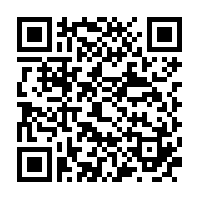Prayer and Zakaat: Inextricably linked
25 September 2014
بسم الله الرحمن الرحيم
وَأَقِيمُوا۟ ٱلصَّلَوٰةَ وَءَاتُوا۟ ٱلزَّكَوٰةَ ۚ وَمَا تُقَدِّمُوا۟ لِأَنفُسِكُم مِّنْ خَيْرٍۢ تَجِدُوهُ عِندَ ٱللَّهِ ۗ إِنَّ ٱللَّهَ بِمَا تَعْمَلُونَ بَصِيرٌۭ
'And pray namaaz and submit zakaat: And whatever good you do for your souls, ye shall find it with Allah, for Allah sees Well all that you do.'
(Surat al-Baqara: 110)
This article was written by Ra'sul Hududil Mayameen Janab Syedi Dr. Aziz Bhaisaheb Qutbuddin in 2014.
The month of Ramadaan is the month of ‘Fasting and Forbearance’. It is also the month of prayer and zakaat. Prayer because each voluntary sunnat prayer is the equivalent in reward to praying a compulsory farizat in any other month and praying a compulsory farizat in Ramadaan is equivalent to praying 70 farizats in any other month. It is the month of zakaat because our Hudaat Kiraam have guided us to submit our zakaat in this month so that we are rewarded multifold (70 times!) on this compulsory farizat amal. The two are inextricably linked in the Quran. The exact same phrase “And be steadfast in salaat - prayer - and submit zakaat” (وأقيموا الصلاة وأتو الزكاة) occurs 6 times in the Quran, one of which is quoted above. Prayer – namaaz – is the remembrance of Allah Ta’ala. It is compulsory five times a day. In those five times we are to put the material world aside and focus all our senses towards the Almighty. Maulana Ali SA said that when you pray, “pray as if you are seeing Allah Ta’ala in front of you (أعبد الله كأنك تراه) – for if you do not see him, be sure that he is seeing you (فإن لم تكن تراه فإنه يراك)”.It is also narrated that Maulana Ali SA used to get so engrossed in namaaz that during battles, if an arrow head was lodged in his back, people would remove it while he was praying and he would not even notice.
The other part, zakaat, is the fourth pillar of Islam, which as mentioned in the previous Sijill, we are obliged to submit to the successor of our Nabi Mohammed, the Imam, and in his seclusion to his Dai. Just as it was incumbent upon the people in the time of Rasulullah to submit zakaat to him, and incumbent upon Rasulullah to collect and distribute as per the norms of Shari’at, it is so in the period of each Imam and his Dai. Zakaat literally means purification. Zakaat is the purification of our funds by submitting to Allah a part of what He has given us. That part is Allah’s right (khuda no haqq che). And because the Imam is the representative of Allah on this earth and the Dai is the representative of the Imam during seclusion, we submit this to him. As believers in Syedna Fakhruddin TUS as the 54rd Dai it is a farizat obligation that we submit our zakaat to him every year. Zakaat is also a purification of our souls because the concept of helping those who are less fortunate or have fallen on difficult times is one of the main purposes of zakaat. It is also important to stress that zakaat must be calculated and given according to the norms of Shari’at. It is not an arbitrary number that someone mysteriously comes up with, nor a number that has to increase (or double) regardless of whether one’s income has increased or not. Those submitting zakat as per Shari’at in Ramadaan to Dai-z-zamaan fulfill their farizat obligation. They also receive immense barakaat, particularly, the doa of Syedna TUS.



